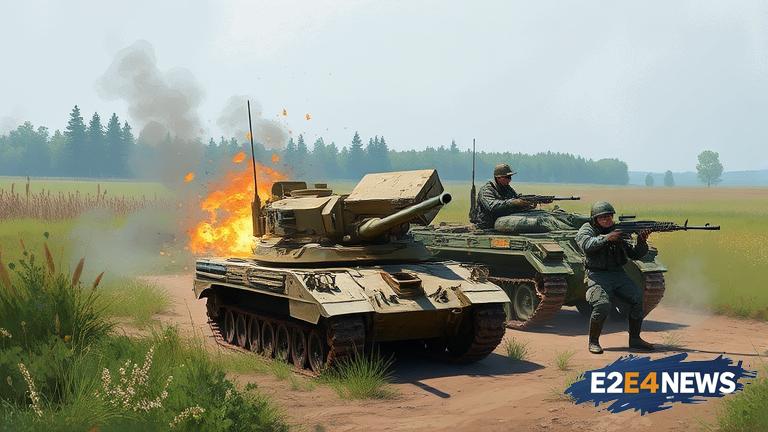Russia’s summer offensive in Ukraine has been marked by intense fighting and significant advancements by Russian forces. The conflict, which began in 2022, has resulted in thousands of deaths and displaced millions of people. The latest escalation has raised concerns about the potential for further violence and the impact on the global community. The Russian military has been using a range of tactics, including artillery bombardments and ground assaults, to try and gain control of key territories. Ukrainian forces have been resisting the advances, but they have been facing significant challenges due to the sheer scale of the Russian military’s resources. The international community has been watching the situation closely, with many countries calling for a peaceful resolution to the conflict. The United States, European Union, and other Western nations have imposed economic sanctions on Russia in an attempt to pressure the government to negotiate a ceasefire. Despite these efforts, the conflict shows no signs of abating, and the humanitarian situation continues to deteriorate. The Ukrainian government has been working to evacuate civilians from the most affected areas, but many people remain trapped in the conflict zone. The Russian government has been accused of committing war crimes, including targeting civilians and using banned weapons. The international community has been calling for an investigation into these allegations and for those responsible to be held accountable. The conflict in Ukraine has also had a significant impact on the global economy, with trade disruptions and increased energy prices affecting countries around the world. The situation has also raised concerns about the potential for further instability in the region, with some analysts warning of a potential wider conflict. The Russian government has been seeking to justify its actions in Ukraine, claiming that it is fighting against neo-Nazis and other extremist groups. However, these claims have been widely disputed, and many experts believe that the true motivation behind the conflict is a desire to expand Russian influence in the region. The Ukrainian government has been seeking to counter the Russian narrative, highlighting the country’s democratic values and its commitment to European integration. The conflict has also had a significant impact on the Russian economy, with the country facing significant sanctions and trade disruptions. The Russian government has been seeking to mitigate these effects, but the long-term consequences of the conflict remain uncertain. As the situation continues to unfold, the international community remains committed to finding a peaceful resolution to the conflict. The United Nations and other international organizations have been working to facilitate negotiations between the two sides, but a breakthrough remains elusive. The conflict in Ukraine serves as a reminder of the importance of diplomacy and international cooperation in resolving conflicts and promoting peace and stability. The situation also highlights the need for continued support for humanitarian efforts, including the provision of aid to those affected by the conflict. In conclusion, the conflict in Ukraine is a complex and multifaceted issue, with significant implications for the global community. As the situation continues to evolve, it is essential that the international community remains engaged and committed to finding a peaceful resolution.





